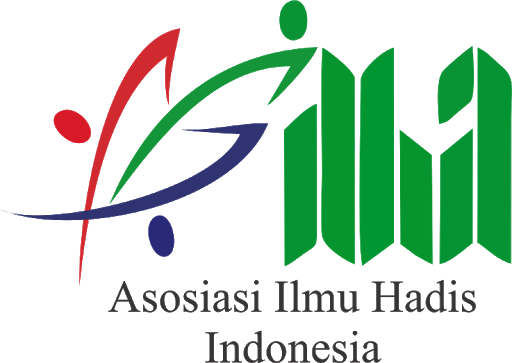Study of Living Hadith Toward The Practice of Fasting Mondays and Thursdays at the Maqamam Mahmuda Islamic Boarding School Central Aceh
DOI:
https://doi.org/10.14421/livinghadis.2021.3108Keywords:
Monday-Thursday Fasting, Living Hadith, Character Building, Islamic Boarding School, Maqamam MahmudaAbstract
It is believed that Monday-Thursday Sunnah fasting can improve the spiritual quality of the students who practice it. Then how is this practice that comes from the Hadith successfully practiced by the students? What is the effect on the character and spiritual building of santri? This study describes the practice of Monday Thursday fasting; teaching method of the Hadith fasting Monday Thursday; and the attention from the Islamic boarding school in reviving the Monday-Thursday fasting in Islamic boarding school environment. The study was conducted in the Maqamam Mahmuda Islamic Boarding School, Central Aceh by using qualitative methods for collecting the data. While the data obtained were analyzed by deductive and inductive methods. After being researched, the the Islamic boarding school has carried out this sunnah of fasting activity very well. This practice of fasting was carried out for the good response of the students to the Hadits of Monday-Thursday fasting Hadith that was taught. In fact, the students do it on their own consciousness. This also has affected the spirituality of the santri, namely the spirit of doing good deeds; exercise patience; educating morality and controlling desire.
References
Ahmad, Upi Sophia., 2021. Wawancara.
Al-Bukhari, M. bin I. (1442). Shahih al-Bukhari. Dar Thuq an-Najah.
At-Tarmidzi, M. bin ‘Isa. (1975). Sunan At-tirmidzi. Syirkah Maktabah wa Mathba’ah Mushthafa al-Babi al-Halabi.
Budiman., 2021. Wawancara.
Cholid., 2021. Wawancara.
Daulay, L. A., & Fitri, A. (2019). Pengaruh Penerapan Syariat Islam Sebagai Preferensi Orang Tua di Kabupaten Aceh Tengah dalam Memilih Lembaga Pendidikan Formal (Study Deskriptif Komparatif: Sekolah Umum, Madrasah dan Pesantren). Belajea: Jurnal Pendidikan Islam, 4(1), 49–60.
Enka, Raudhah., 2021. Wawancara.
Fachrudin, Y. (2020). MODEL PEMBINAAN KARAKTER SANTRI DALAM PENDIDIKAN PESANTREN. Dirasah: Jurnal Pemikiran Dan Pendidikan Dasar Islam, 3(3), 53–68.
Faza, A. M. (2010). Mengapa Harus Puasa Senin-Kamis? Qultum Media.
Fikri., 2021. Wawancara.
Giftia, Maria., 2021. Wawancara.
Hamidi, F., Hakim, A., Leksono, A. S., & Yanuwiadi, B. (2019). Pengaruh puasa sunnah senin kamis terhadap hitung jenis leukosit. Jurnal Keperawatan, 12(1), 7.
Hasbullah. (1996). Kapita Selekta Pendidikan Islam. Rajawali Press.
Kompri. (2018). Manajemen dan Kepemimpinan Pondok Pesantren. Prenada Media Group.
Majid, N. (1997). Bilik-bilik Pesantren: Sebuah Potret Perjalanan. Paramadina.
Nawas, M. Z. A. (2016). TRADISI PUASA HARI SENIN DAN KAMIS (STUDI TENTANG ‘ILAL HADIS). PUSAKA, 4(2), 205–213.
Pazira, Anggun., 2021. Wawancara.
Qudsy, S. Z. (2016). Living Hadis: Genealogi, Teori, dan Aplikasi. Jurnal Living Hadis, 1(1), 177–196.
Safri, A. N. (2014). Pesantren Waria Senin-Kamis Al-Fatah Yogyakarta: Sebuah Media Eksistensi Ekspresi Keberagamaan Waria. ESENSIA: Jurnal Ilmu-Ilmu Ushuluddin, 15(2), 251–260.
Sejati, S. (2016). Perkembangan Spiritual Remaja dalam Perspektif Ahli. Jurnal Hawa: Studi Pengarus Utamaan Gender Dan Anak, 1(1).
Syafe’i, I. (2017). Pondok Pesantren: Lembaga Pendidikan Pembentuk Karakter. Jurnal Al-Tadzkiyah, 8(1).
Tazkira, Raihan., 2021. Wawancara.
Zacharias, D. T. (2019). Metode Penelitian Sosial Teori dan Aplikasi. Uwais Inspirasi Indonesia.
Zarkasyi, H. F. (2015). Modern pondok pesantren: Maintaining tradition in modern system. TSAQAFAH, 11(2), 223–248.
Ziemek, M. (1986). Pesantren dalam Perubahan Sosial (B. B. Sundojo (ed.)). P3M.
Downloads
Published
Issue
Section
License
- Authors who publish with this journal agree to the following terms:
- Authors retain copyright and grant the journal right of first publication with the work simultaneously licensed under a Creative Commons Attribution License that allows others to share the work with an acknowledgement of the work's authorship and initial publication in this journal.
- Authors are able to enter into separate, additional contractual arrangements for the non-exclusive distribution of the journal's published version of the work (e.g., post it to an institutional repository or publish it in a book), with an acknowledgement of its initial publication in this journal.
- Authors are permitted and encouraged to post their work online (e.g., in institutional repositories or on their website) prior to and during the submission process, as it can lead to productive exchanges, as well as earlier and greater citation of published work.
















